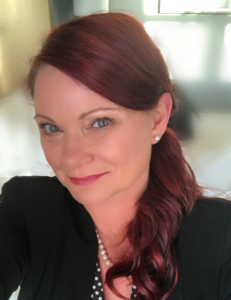
The call from the out-of-state attorney seemed much like any other. “We’ll need a court reporter and videographer to cover a deposition. Are you available?” But this call turned unusual.
After obtaining the scheduling information, the next question was, “Do you do pro bono work?”
Now, I’ve done pro bono work before for select parties who couldn’t afford our services, for the Veterans History Project, even offering our services on immigration cases for which our existing clients were providing their legal services free of charge. My only hesitancy here was the lack of knowledge of this particular firm, the case at hand, or any of their history with pro bono work. This left me wondering if I would be agreeing to help promote a noble cause, aid someone truly indigent in seeking justice, or just stupidly discounting our services. Hesitantly, I said, “Yes.”
I provided the caller with a summary of our state association’s guidelines for pro bono work. In part, the pro bono guidelines state, “A volunteer reporter will provide 50 pages of transcript at no charge. All subsequent pages will be billed at the reporter’s regular page rate unless the reporter waives this fee or negotiates a discounted page rate.” The client happily agreed, and the first deposition date was set.
On the eve of the deposition, the reporter assigned to cover the case did a bit of research to prepare for the following day’s proceedings. The search of the case style, “State of Florida v. Clemente Javier Aguirre-Jarquin,” resulted interesting details about the case. Aguirre was serving a sentence on Florida’s death row for the murder of his neighbors Cheryl Williams and Carole Bareis, and his team of lawyers was seeking to have his conviction overturned.
“On the morning of June 17, 2004, Aguirre found the bodies of Cheryl Williams and her mother, Carol Bareis, in their trailer home. They had been stabbed dozens of times. Distressed by the violent scene, Aguirre checked the victims to see if they were still breathing, at which point he got the victims’ blood on his clothing. Realizing they were dead, Aguirre picked up a knife that was near Williams’ body, fearful that the perpetrator was still present, but then panicked, throwing the knife into the yard and returning to his neighboring trailer.
“When questioned by the police, Aguirre initially reported that he knew nothing about the murders; at that time, Aguirre was an immigrant from Honduras with no criminal history but feared deportation from the United States. Later that same day, however, he asked to speak to police again and voluntarily disclosed that he’d been in the trailer earlier that morning and discovered the bodies. The officers arrested him that day and charged him with evidence tampering. He remained a person of interest and was held without bond until he was charged 10 days later with the double murders. Aguirre had no previous criminal history.”
Our witness was to be Samantha Williams, the daughter and granddaughter of the victims. Williams did not appear for the first date scheduled, but ultimately the deposition did proceed. The attorney who hired us represented Aguirre through the Innocence Project, a volunteer organization whose mission is to exonerate the wrongfully convicted and seek justice reform, a mission near and dear to my heart.
Because I am a videographer, court reporter, and firm owner, I was able to pay the reporter in full, donate my time as the videographer, and heavily discount the remaining charges to about one-fourth of the usual cost. The payoff for me, other than the gratification of doing the right thing? Approximately nine months later, our office learned of Mr. Aguirre’s exoneration.
The pro bono work I’ve done has proven to be some of the most interesting and personally rewarding work of my career. This case was no exception. We applaud the efforts of the Innocence Project and take great pride in the role we were able to play in our justice system.
For more about the story: https://www.youtube.com/watch?v=4hHgi4AxkXw
